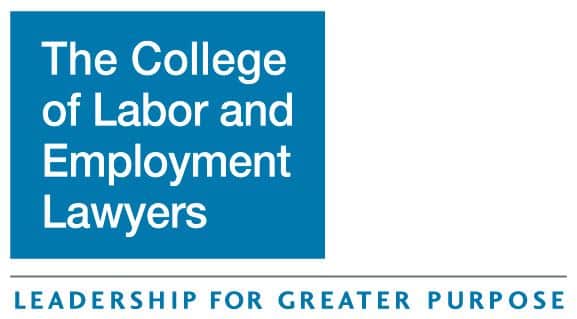In the recent case of Beauford v. ActionLink, LLC, the United States Court of Appeals for the Eighth Circuit (which includes Missouri) ruled against an employer who improperly classified employees as exempt from the overtime protections of the FLSA. The Court held that employees who received and cashed settlement checks issued as a result of a U.S. Department of Labor (“DOL”) audit/investigation were not barred from seeking additional recovery. An employer’s disclaimer indicating that the checks represented “full payment” of wages earned, including minimum wage and overtime, was deemed insufficient to notify employees of the consequences of cashing the checks.
ActionLink, a marketing company, initially classified its brand advocates as “outside salesmen” exempt from the FLSA’s overtime requirements. Brand advocates visited stores, trained store employees and spoke with customers about products; however, they did not sell directly to customers or to retail stores. Although brand advocates worked 50 to 75 hours per week, the employer did not pay them overtime. In September 2011, the DOL received a complaint that the employer was misclassifying its brand advocates as exempt from overtime pay. The DOL investigated the allegations of the complaint and found that the employer had in fact misclassified the brand advocates. Thereafter, the employer reclassified the brand advocates, calculated the back overtime pay each was due, and sent settlement checks to those it believed deserved additional wages. The check contained a disclaimer indicating that the checks represented “full payment” for missing back wages.
A group of brand advocates sued the employer claiming that they did not receive the full amount to which they were entitled under the FLSA. The employees moved for partial summary judgment, asking the district court to declare that they were nonexempt under the FLSA. The employer also moved for summary judgment, denying that it had misclassified the employees and requesting that the district court declare the employees exempt. The district court granted the employees’ motion and declared them nonexempt. Thereafter, the employer moved for summary judgment against all of the employees who had cashed the checks, asserting that these employees had waived their rights for additional recovery by previously accepting payment, and the employer relied heavily on the presence of the disclaimer language. The district court ruled in favor of the employer, and the employees appealed.
Court Says Settlement Agreement Did Not Legally Waive Employees’ Claims for Unpaid Wages
The Court addressed the question of whether the brand advocates who cashed their settlement checks waived their rights to pursue additional claims against the employer. There was no dispute that the brand advocates received and cashed checks from the employer and that the DOL was involved in some respects with the settlement. However, the DOL investigator did not approve the amounts of the checks until a month after the checks were distributed. Moreover, the record did not indicate whether the investigator authorized or approved of the waiver language on the checks. The Court concluded that the release language on the checks was insufficient to notify the brand advocates of the consequences of cashing the checks. Therefore, the employees did not waive their FLSA claims by cashing the checks.
Although the issue of what constitutes a valid settlement is an issue of first impression in the Eighth Circuit, other circuits have held that the plain language of 29 U.S.C. Sec. 216(c) requires an agreement by the employee to accept a certain amount of back wages and requires the employer to pay those wages. Simply tendering a check and having the employee cash that check does not constitute an “agreement” to waive claims; an agreement must exist independently of payment. This process must also be supervised by the DOL or by a Court.
Because FLSA rights are statutory and generally cannot be waived, companies can settle claims in only two ways. Before employees sue, they can waive their FLSA rights only if they agree to accept full payment of a settlement offered by their employer, they receive full payment of that settlement, and the settlement was supervised by the Secretary of Labor.
There is case law to suggest that if an employee resolves a claim for unpaid wages while being represented by counsel, and there is a bona fide dispute as to the amount owed on the claim, such a claim can be waived via a private settlement agreement without DOL or Court approval. For a previous blog post on this issue, click here. In the Beauford case, it appears that the employees were not represented by counsel when they received their initial checks, so it is not surprising that the Court concluded that their receipt of the checks was not an effective waiver of their claims.
Court Rejects Employer’s Exemption Arguments
The Court also addressed the employer’s arguments that the district court erroneously concluded that the brand advocates were nonexempt employees under the FLSA. ActionLink admitted that the brand advocates worked in excess of 40 hours per week and that they did not receive additional wages for their overtime work. By law, employees are entitled to overtime pay unless an exemption applies. The employer raised two affirmative defenses: (1) that the brand advocates were “outside salesmen”; and (2) that they fit the administrative exemption. The Court first examined whether the brand advocates fit within the outside sales exemption. The dispute was whether the brand advocates’ primary duty was “making sales.” “Sale” for purposes of the FLSA “includes any sale, exchange, contract to sell, consignment for sale, shipment for sale, or other disposition.” The Court held that the brand advocates did not make direct sales. The Court concluded that the activities of brand advocates were better understood as nonexempt promotional work designed to stimulate sales that will be made by someone other than the brand advocate. It was up to retail-store employees engaged in the paradigmatic sale of electronics to convince customers to choose a product and help that customer pay for it at a cash register. Thus, brand advocates were not considered outside salesmen under the FLSA.
ActionLink next argued that brand advocates fell within the FLSA’s administrative exemption. An administrative employee for purposes of the FLSA is an employee: (1) compensated on a salary or fee basis at a rate of not less than $455 per week; (2) whose primary duty is the performance of office or non-manual work directly related to the management or general business operations of the employer or the employer’s customers; and (3) whose primary duty includes the exercise of discretion and independent judgment with respect to matters of significance.
The Court concluded that brand advocates do not satisfy the third element of the administrative test, because they had little autonomy and did not exercise of discretion and independent judgment with respect to matters of significance. Brand advocates follow set scripts and “well established techniques, procedures or specific standards described in manuals or other sources,” conduct that is insufficient to fall within the administrative exemption. Brand advocates do not possess a level of independence that permits them to make an independent choice, free from immediate direction or supervision; they must seek approval before deviating from their set procedures.












